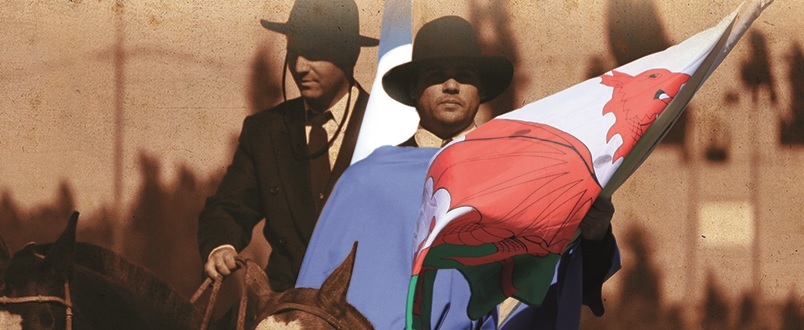by Geraldine Lublin, author of Memoir and Identity in Welsh Patagonia: Voices from a Settler Community in Argentina
In a recent interview with BBC Radio Cymru, I was asked if the Welsh should apologise to Patagonia’s indigenous peoples for taking their land. It is an interesting and complex question to which I was unable to respond fully in the few minutes available on air. When the first contingent of Welsh settlers arrived in Patagonia in July 1865, they had agreed with the government in Buenos Aires that they would settle the territories around the Chubut River on behalf of Argentina. It did not escape the Welsh that those lands belonged to Patagonia’s indigenous peoples: in the very Handbook of the Welsh Colony they recognised ‘the Indians’ rights to the land’.[1] Nevertheless, the leaders of the migration had been told by the central authorities that a treaty had been signed with the local indigenous groups to the effect that the latter would cede those lands to the government and protect the new settlement in exchange for a consignment of sheep, regular rations and a monthly allowance for the different groups undersigning the document.[2] It is on this basis that both peoples established what would become a mutually beneficial bond of economic complementarity that served them well until it was disrupted by the genocidal ‘Conquest of the Desert’ undertaken by the Argentine military between 1878 and 1884. Though they were not responsible for these campaigns of extermination — and, indeed, their protestations to the central government are well-documented — the ‘clearing’ and opening of the lands for (white) settlement allowed the Welsh to go West and populate the Andean area in 1885.
From then on, the Welsh community in Chubut would tread its meandering path towards Argentineness, a journey that would culminate in the adoption of the so-called ‘Welsh Feat’ as founding narrative for the Province of Chubut in 1958. It is that journey from Welsh to Argentine settlers that Memoir and Identity in Welsh Patagonia attempts to trace, exploring its implications for the larger settler colonial formation that is Argentina. In the current context, where indigenous re-emergence seems to be leading the way towards real pluralism, unreserved apologies are undoubtedly owed to dispossessed indigenous peoples, if not by Welsh descendants as such, then certainly by all those who have benefitted from the spoils of settler colonial structures.
Geraldine Lublin completed her PhD at the School of Welsh, Cardiff University, before being appointed Lecturer in Spanish at Swansea University.
[1] Hugh ‘Cadvan’ Hughes, Llawlyfr y Wladychfa Gymreig (Llynlleifiad: Lewis Jones & Co., 1862), p. 19.
[2] Details about the ‘Chegüelcho Treaty’ can be found in M. Gavirati, ‘El contacto entre Galeses, Pampas y Tehuelches: la conformación de un modelo de convivencia pacífica en la Patagonia central (1865–1885)’ (unpublished Ph.D. thesis, Universidad del Centro de la Provincia de Buenos Aires, Argentina, 2012).


